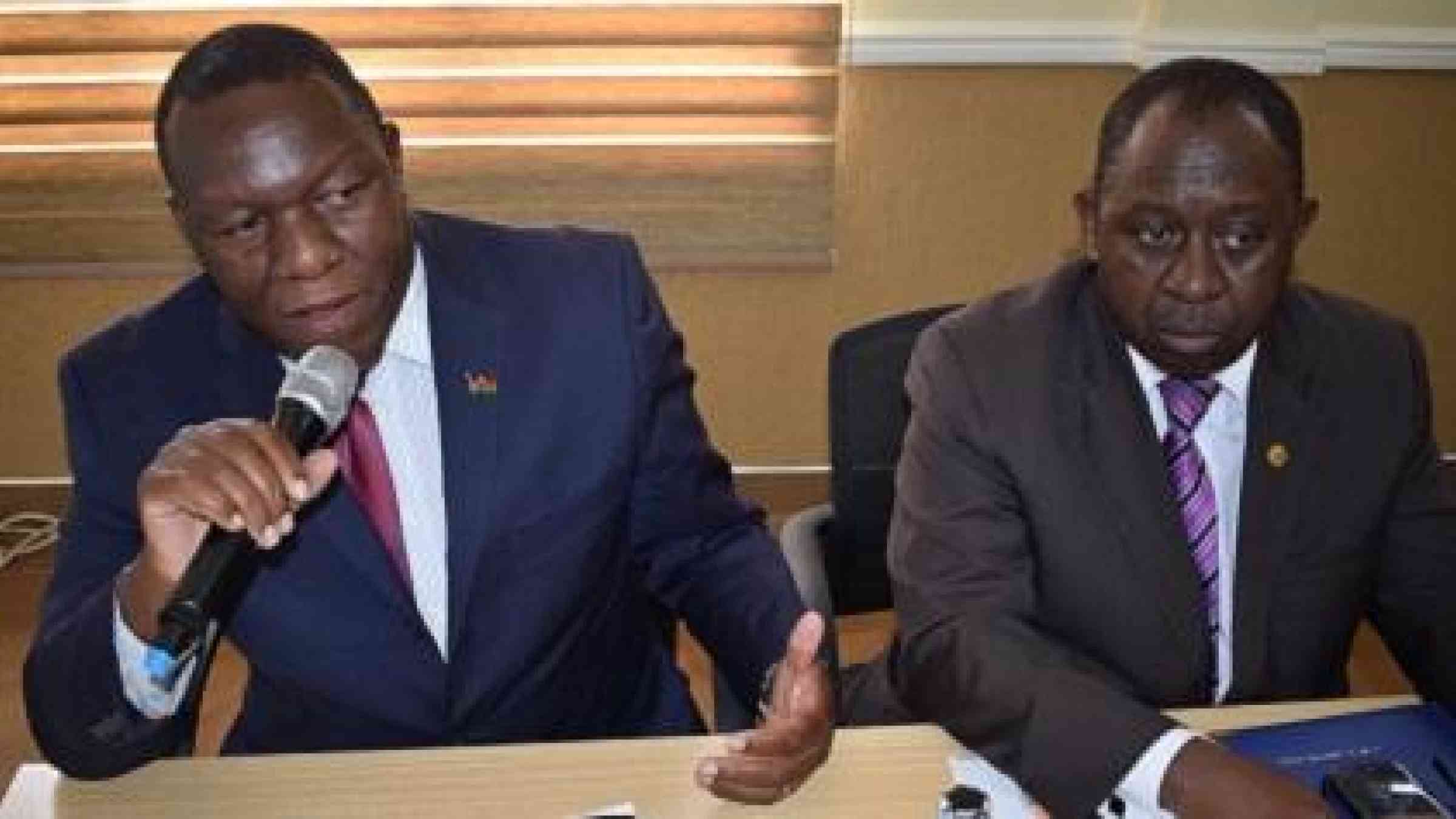Malawi to start disaster loss data base

Lilongwe, 6 April, 2018 - Malawi today became the latest country in Africa to complete training on establishing a national disaster loss data base, considered an essential prerequisite for being able to report on progress on reducing disaster losses and improving disaster risk management.
Opening the workshop on Wednesday in Lilongwe, Principal Secretary for Administration in the Office of the President and Cabinet (OPC), Mr. Cliff Chiunda, said the workshop is expected to develop a database for tracking disaster damages and losses in Malawi.
He said the database will help Malawi account for the disasters that the country experiences. Post Disaster Needs Assessments (PDNAs) for 2015 and 2016 disasters found cost the country K145.6 billion and K275 billion respectively in damages and losses.
“These are the only two disaster events where government conducted a systematic PDNA. The damages and losses of the other disaster events remain unaccounted for,” said Mr. Chiunda.
“When this project is successfully implemented, Malawi will be able to track and record all damages and losses caused by different disasters which will form the evidence base for various information users and decision makers.”
He further noted that efforts to develop the database have come at the right time when the country is hit hard by climate and environmental degradation, saying the tool will guide government investments on disaster risk reduction interventions.
Mr. Chiunda thanked the United Nations Office for Disaster Risk Reduction (UNISDR) for its technical support towards initiating disaster risk management programmes in the Sub- Saharan African region.
Establishment of a disaster loss data base will allow Malawi to track its progress on reducing mortality, numbers of affected persons, economic losses and damage to critical infrastructure in line with the global plan for reducing disaster losses, the Sendai Framework for Disaster Risk Reduction 2015-2030.
UN Resident Coordinator in Malawi, Ms. Maria Jose Torres said sustainability of disaster risk reduction investments highly depends on good quality data to inform actions interventions.
“Accounting for disaster losses is a first step towards taking responsibility for, and assessing, disaster risk. Historical losses allow us to develop trends, specifically on the hazards that occur frequently,” said Torres.
“For instance, we can only know the appropriate design of a resilient dyke if we have data on damage caused by previous flooding. Therefore, the primary motivation for recording disaster losses is to document the trends and aggregate statistics which can inform local, national and international disaster risk reduction programmes.”
She said efficient data collection, storage and use has always been a difficult feat to achieve in Malawi as evidenced by huge data gaps which exist in various sectors, including disaster risk management.
“There is therefore a need for serious financial and technical investment in this area. There is need for strengthening, standardizing and harmonizing the way data is collected and used,” said Torres.
In his remarks, Secretary and Commissioner for the Department of Disaster Management Affairs (DDMA), Mr. Clement Chinthu Phiri said the department will provide leadership in the implementation of all the components of the disaster damage and loss database.
UNISDR in partnership with DDMA and with financial support from the European Union (EU), is conducting a three-day training workshop which finishes today on disaster damages and losses tracking which will explore ways of enhancing efforts to build communities’ resilience to natural hazards.
The training workshop started with a half-day preparatory meeting for Principal Secretaries and Chief Directors for various government ministries and departments as well as heads of United Nations Agencies. (Reporting by UNDP Malawi.)